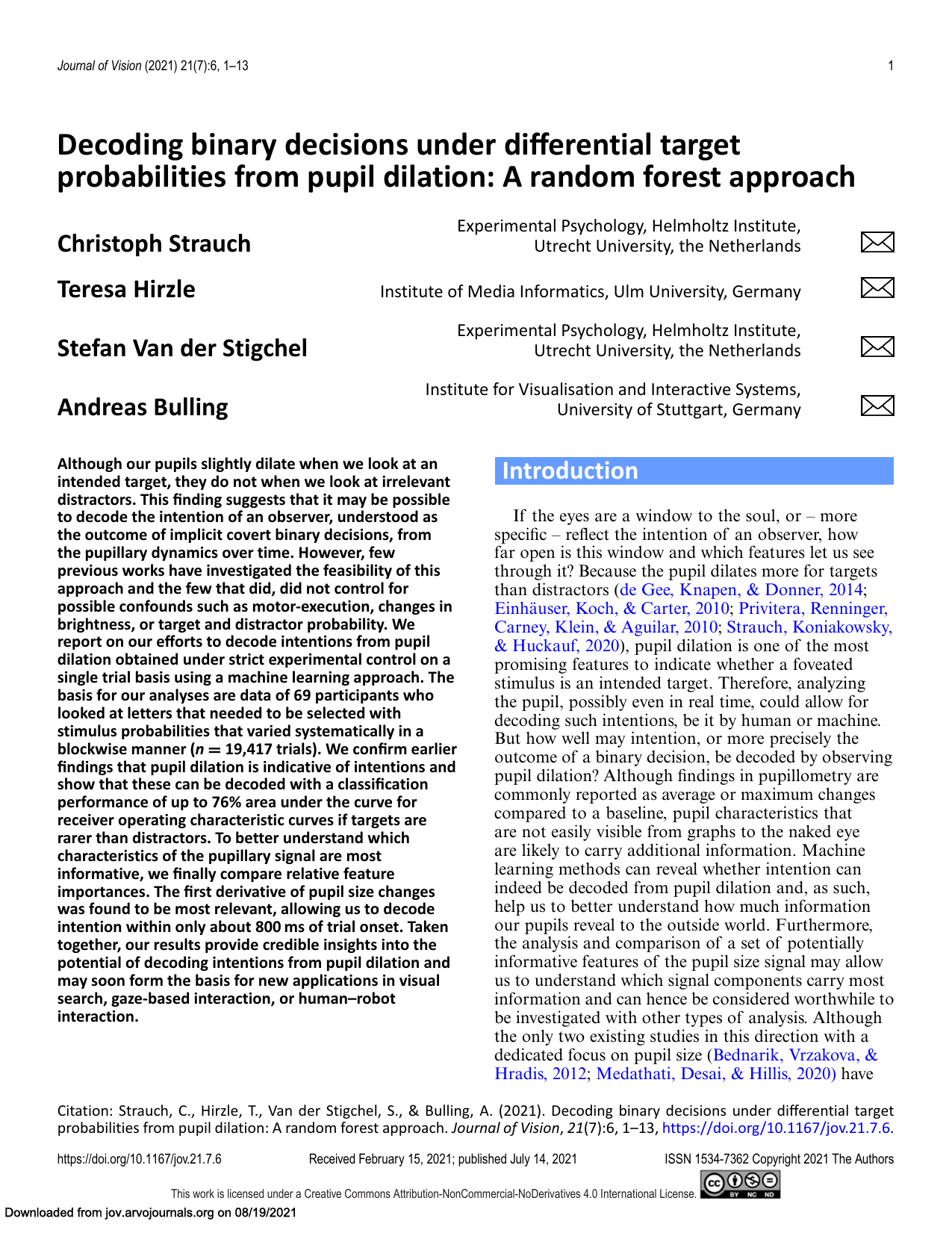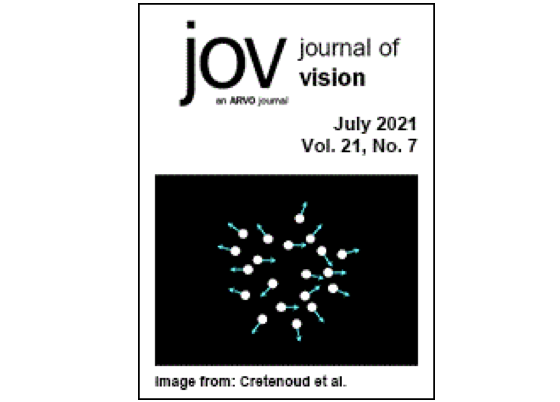
Decoding binary decisions under differential target probabilities from pupil dilation: A random forest approach
Christoph Strauch,
Teresa Hirzle,
Stefan Van Stigchel,
Andreas Bulling
Journal of Vision (JOV), 21 (7),
pp. 1-13,
2021.
Abstract
Links
BibTeX
Project
While our pupils slightly dilate when we look at an intended target, they do not when we look at irrelevant distractors. This suggests that it may be possible to decode the intention of an observer, understood as the outcome of implicit covert binary decisions, from the pupillary dynamics over time. However, only few previous works have investigated the feasibility of this approach and the few who did, did not control for possible confounds such as motor-execution, changes in brightness, or target and distractor probability. We report on our efforts to decode intentions from pupil dilation obtained under strict experimental control on a single trial basis using a machine learning approach. The basis for our analyses are data of n = 69 participants who looked at letters that needed to be selected with stimulus probabilities that varied systematically in a blockwise manner (n = 19,417 trials). We confirm earlier findings that pupil dilation is indicative of intentions and show that these can be decoded with a classification performance of up to 76% ROCAUC if targets are rarer than distractors. To better understand which characteristics of the pupillary signal are most informative, we finally compare relative feature importances. The first derivative of pupil size changes was found to be most relevant, allowing us to decode intention within only about 800 ms of trial onset. Taken together, our results provide credible insights into the potential of decoding intentions from pupil dilation and may soon form the basis for new applications in visual search, gaze-based interaction, or human-robot interaction.
@article{strauch21_jov,
author = {Strauch, Christoph and Hirzle, Teresa and der Stigchel, Stefan Van and Bulling, Andreas},
title = {Decoding binary decisions under differential target probabilities from pupil dilation: A random forest approach},
journal = {Journal of Vision (JOV)},
year = {2021},
volume = {21},
number = {7},
pages = {1-13},
doi = {10.1167/jov.21.7.6}
}



